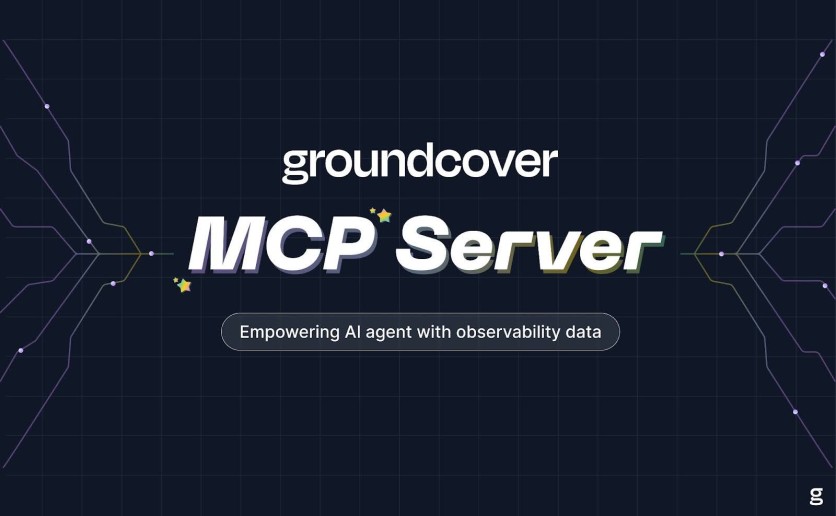
MCP is all the rage. Short for Model Context Protocol (MCP), it's an open standard developed by Anthropic that gives AI agents a consistent way to connect with tools, services, and data. In a world where AI-driven development is moving faster than ever, it's critical for there to be a healthy MCP ecosystem so tools and data can communicate with context.
Now that AI agents can send structured requests to any MCP-compatible tool, get results back in real time, and even chain multiple tools together, it's reasonable to expect more and more software vendors to build out their own MCP servers.
Enter groundcover.
groundcover is one of the most tech-forward observability companies on the market. They have fully embraced eBPF technology and hyper specialize in cloud native environments. They are also early pioneers of Bring Your Own Cloud – or "SaaS 2.0" as they like to refer to it – which provides users with a SaaS experience while still allowing customers to host their own data on premise. This best-of-both-worlds approach is an example of what an innovative company can do while they are still lean and on the cutting edge.
So it's no surprise that groundcover is quick to launch an MCP server. Starting today, developers can infuse their AI-driven development with deep system context from groundcover's granular access to logs, metrics, and traces empowered by eBPF.
"AI is transforming software development and enabling teams to move faster than ever – but to ensure accuracy and reliability, AI needs the same deep context developers rely on," said Orr Benjamin, Head of Product at groundcover. "By integrating with groundcover's MCP server, tools like Cursor gain unparalleled visibility into the system and architecture, empowering AI to deliver code that's not just fast but also production-ready."
Some of the data that groundcover already collects for customers as an observability platform include identified errors, problematic logs, cloud infrastructure issues, traces with specific customer IDs, the topology of communication of services, and more. Now all of this context can be baked into the entire software development lifecycle, as early as code generation, so that AI-assisted coding tools have more of the necessary context to write code that's actually reliable and secure, while simultaneously reducing hallucinations.
This is a game-changer.
ⓒ 2026 TECHTIMES.com All rights reserved. Do not reproduce without permission.




